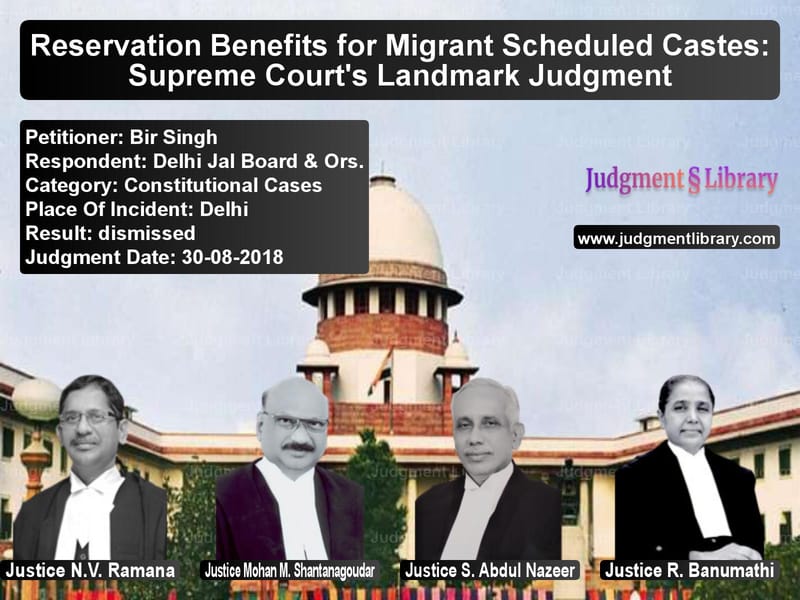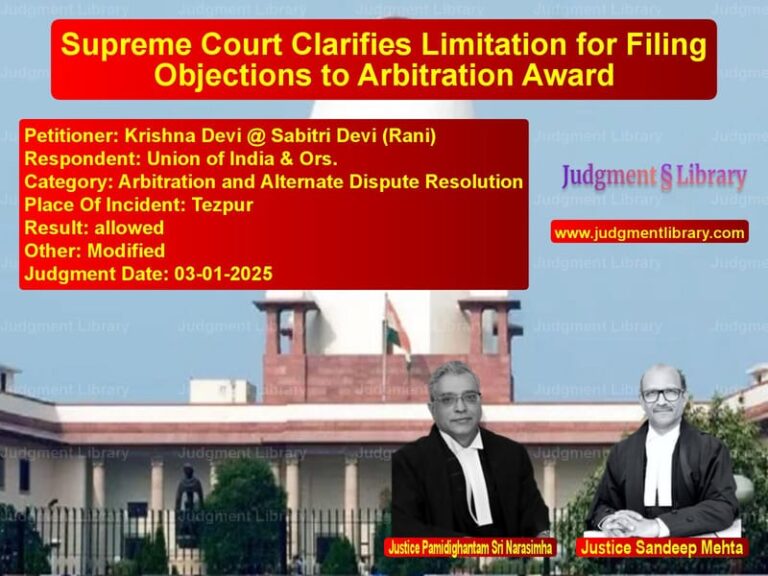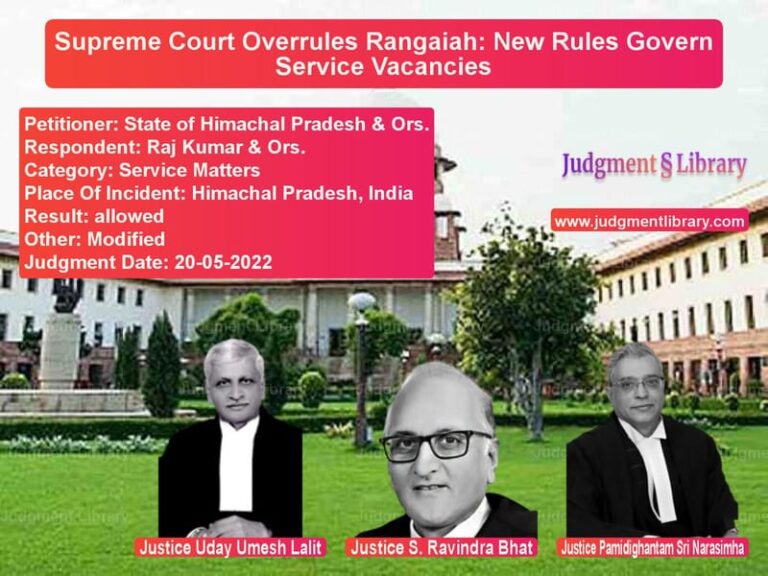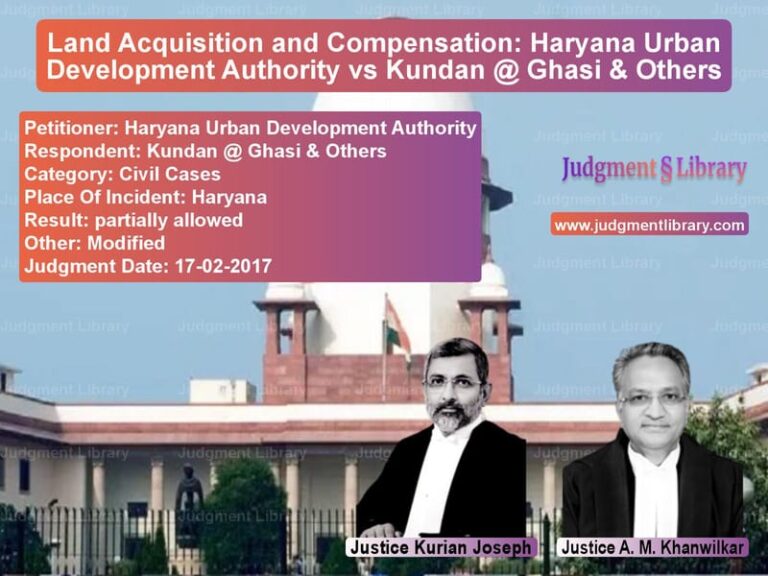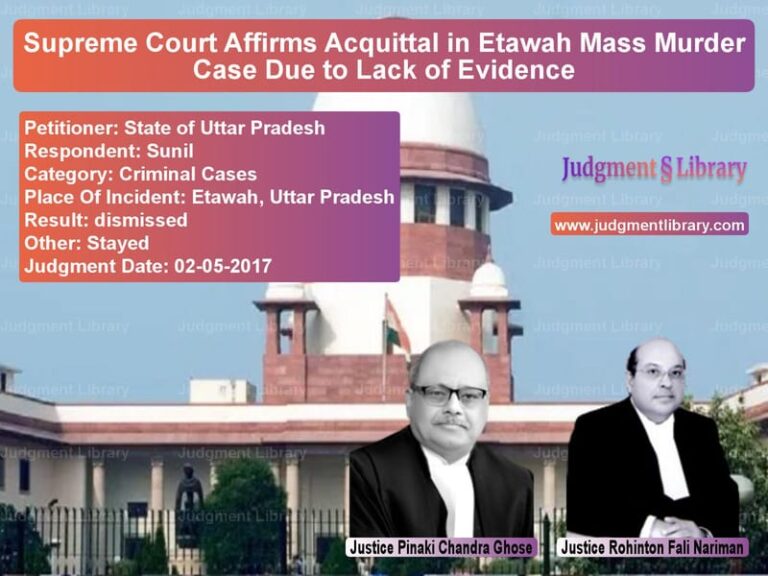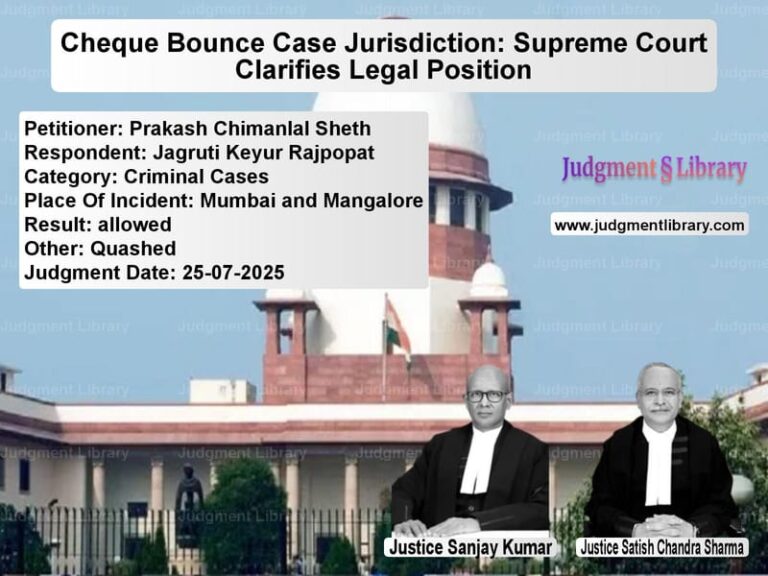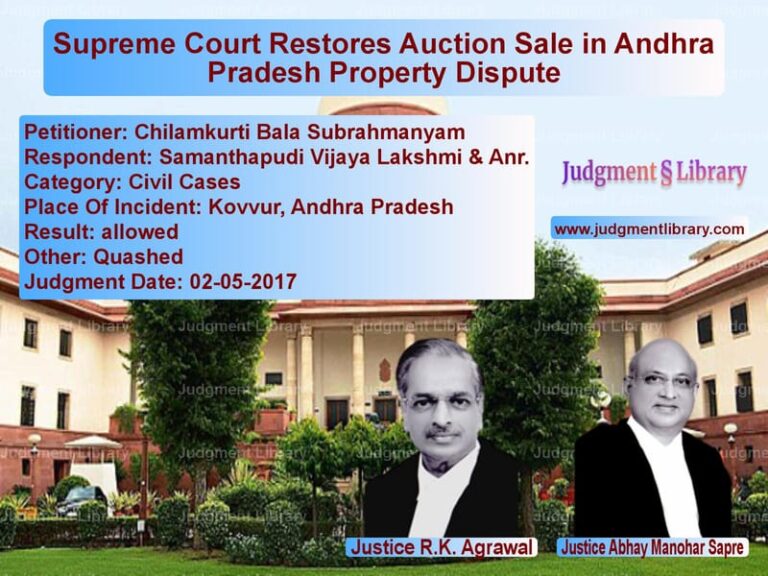Reservation Benefits for Migrant Scheduled Castes: Supreme Court’s Landmark Judgment
The Supreme Court of India delivered a landmark judgment in the case of Bir Singh vs. Delhi Jal Board & Ors., addressing the crucial question of whether a person belonging to a Scheduled Caste (SC) in one state can claim the same status in another state or Union Territory (UT) for employment or education benefits. This judgment, delivered by a five-judge bench, brings clarity to the interplay between Articles 16(4), 341(1), and 342(1) of the Constitution of India.
The Supreme Court examined several precedents and constitutional provisions before arriving at its conclusion. The key question before the court was whether Scheduled Caste status is applicable across states and UTs or if it is confined to the state of origin of the individual.
Background of the Case
The petitioner, Bir Singh, sought reservation benefits in employment under the Delhi government. However, the authorities rejected his claim on the ground that he was a Scheduled Caste member from a different state and could not avail of the SC reservation benefits in Delhi.
The judgment also involved several appeals, including cases from the Calcutta High Court concerning Scheduled Tribe (ST) status for certain communities in the Andaman & Nicobar Islands.
Arguments of the Petitioner
The petitioner contended that Scheduled Caste status should be uniform across the country and not limited to a specific state or Union Territory. He argued that restricting SC benefits to the state of origin would violate the fundamental right to equality under Article 14 of the Constitution.
Arguments of the Respondent
The Delhi Jal Board and other respondents argued that reservation benefits are state-specific and that the Constitution, through Articles 341 and 342, empowers the President to define SC and ST lists for each state separately. They relied on previous judgments, including Marri Chandra Shekhar Rao vs. Dean, Seth G.S. Medical College and Action Committee vs. Union of India, which held that SC/ST status is not transferable from one state to another.
Key Observations of the Supreme Court
The court extensively analyzed the constitutional scheme and various judicial precedents before delivering its ruling. Some of the most crucial observations made by the bench are:
- “A person notified as a Scheduled Caste in State ‘A’ cannot claim the same status in another State on the basis that he is declared as a Scheduled Caste in State ‘A’.”
- “It will, therefore, be in consonance with the constitutional scheme to understand the enabling provision under Article 16(4) to be available to provide reservation only to the classes or categories of Scheduled Castes/Scheduled Tribes enumerated in the Presidential orders for a particular State/Union Territory within the geographical area of that State/Union Territory and not beyond.”
The judgment reaffirmed that the Constitution grants the President the exclusive power to determine SC and ST lists for each state and UT, and these lists cannot be altered except by a law made by Parliament.
Impact on Union Territories
One of the significant aspects of the ruling was its impact on Union Territories (UTs), particularly Delhi. The court examined whether the pan-India reservation rule applied to Delhi, given its unique status as a National Capital Territory.
While the majority held that Delhi could follow a pan-India reservation policy for SC/STs, Justice R. Banumathi dissented, stating:
“So far as the National Capital Territory of Delhi is concerned, the pan-India Reservation Rule in force is in accord with the constitutional scheme relating to services under the Union and the States/Union Territories.”
Final Judgment
The Supreme Court concluded that a Scheduled Caste person from one state cannot claim reservation benefits in another state or Union Territory unless the Presidential Order for that state/UT specifically includes them. The judgment upheld the long-standing principle that SC/ST status is state-specific and cannot be transferred upon migration.
This ruling clarifies the constitutional position and ensures that reservation policies are implemented strictly in accordance with the Presidential Orders. The decision has far-reaching implications for SC/ST reservation policies in employment and education across India.
Petitioner Name: Bir Singh.Respondent Name: Delhi Jal Board & Ors..Judgment By: Justice Ranjan Gogoi, Justice N.V. Ramana, Justice Mohan M. Shantanagoudar, Justice S. Abdul Nazeer, Justice R. Banumathi.Place Of Incident: Delhi.Judgment Date: 30-08-2018.
Don’t miss out on the full details! Download the complete judgment in PDF format below and gain valuable insights instantly!
Download Judgment: Bir Singh vs Delhi Jal Board & Or Supreme Court of India Judgment Dated 30-08-2018.pdf
Direct Downlaod Judgment: Direct downlaod this Judgment
See all petitions in Fundamental Rights
See all petitions in Constitution Interpretation
See all petitions in Legislative Powers
See all petitions in Public Interest Litigation
See all petitions in Judgment by Ranjan Gogoi
See all petitions in Judgment by N.V. Ramana
See all petitions in Judgment by Mohan M. Shantanagoudar
See all petitions in Judgment by S. Abdul Nazeer
See all petitions in Judgment by R. Banumathi
See all petitions in dismissed
See all petitions in supreme court of India judgments August 2018
See all petitions in 2018 judgments
See all posts in Constitutional Cases Category
See all allowed petitions in Constitutional Cases Category
See all Dismissed petitions in Constitutional Cases Category
See all partially allowed petitions in Constitutional Cases Category

